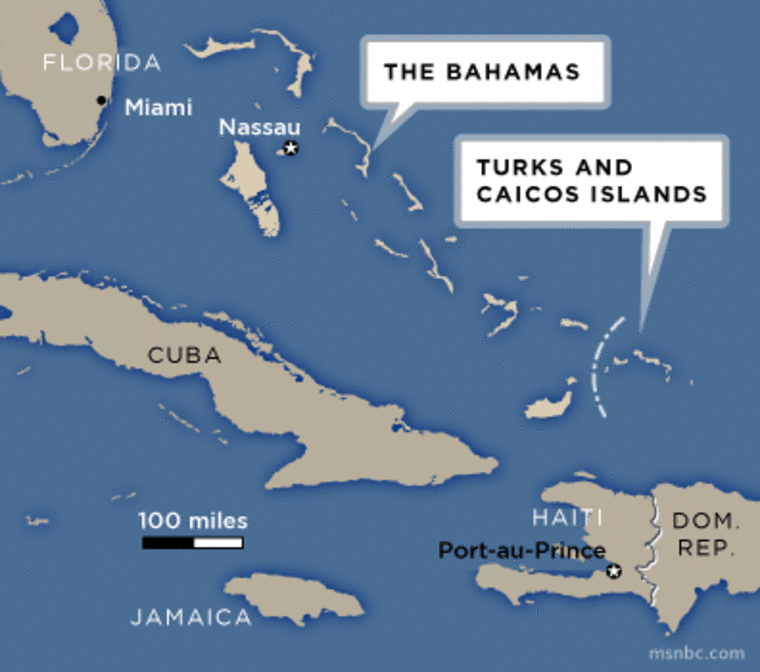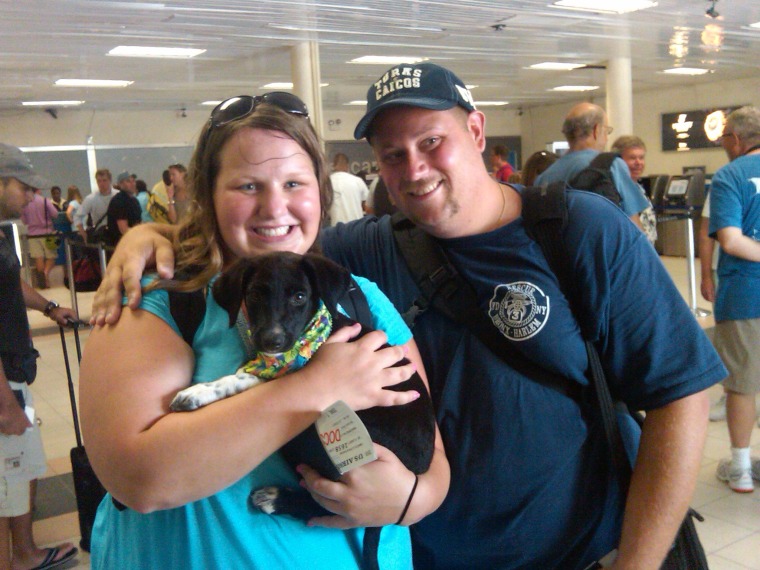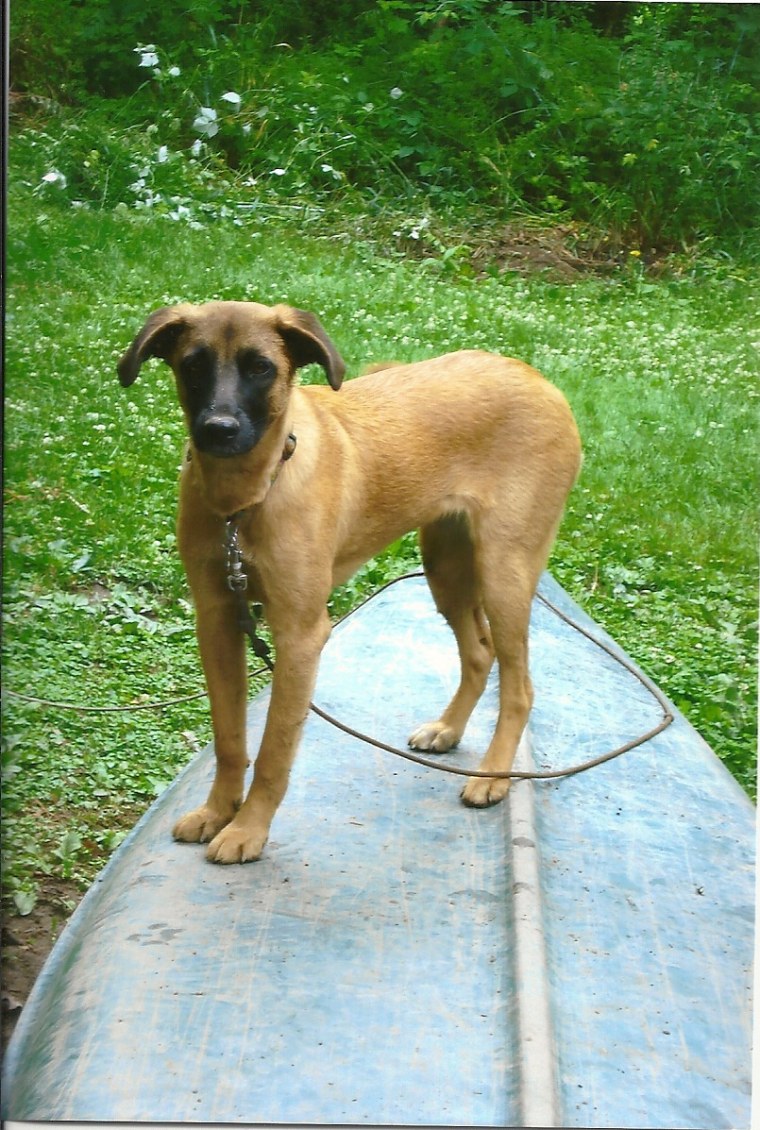Elizabeth Sunshine was rushing to the airport in Newark, N.J. She had a date to meet her new baby in person for the very first time, and she was running late.
The baby’s couriers — a friendly couple from Connecticut — waited patiently, and when Sunshine arrived they handed her a small, squirmy, squishy black puppy named Wilma.
Wilma’s journey had been anything but ordinary. Known as a “potcake dog,” she began her life without anyone to look after her on the streets and beaches of the Caicos Islands. Potcake Place, a dog-rescue organization based on the island of Providenciales, went to great lengths to connect Wilma with a good home in the United States, and also made arrangements for the vacationing tourists from Connecticut to fly Wilma all the way to her new owner.
“All the people involved in this whole process are just wonderful, wonderful people,” said Sunshine, 47, of Kinderhook, N.Y. “They’re serious about giving these dogs forever homes.”
‘They know they’ve been saved’Skinny, haggard, homeless dogs who wander the streets searching for scraps are an all-too-common sight in countries all over the world. In the Bahamas and Turks and Caicos Islands, such dogs are dubbed potcakes because locals feed them caked remains from the bottoms of their cooking pots.
Believed to be a mix of Labrador retrievers, German shepherds and English fox terriers, most potcakes have sweet faces, mellow temperaments and short, difficult lives. The dogs have been shot and poisoned by police because officials on the tourism-dependent islands view them as nuisances. But their numbers have kept growing anyway because of a dearth of low-cost spay-and-neuter programs and animal shelters on the islands.
Several years ago, Providenciales resident Jane Parker-Rauw reached a breaking point. She couldn’t handle seeing yet another dog hobbling around with gunshot wounds or sickened by rat poison. She had to do something — anything — even if that something was small.

And so, she brought a stray puppy home. Then another. Then another. Then a litter of puppies. Soon she started networking with local residents who might be willing to open their homes to a dog, or two, or possibly three?
“It had a ripple effect, and then people just knew that they could call me and I would always try my best to help,” said Parker-Rauw, 36, a single mother with a 6-year-old daughter.
Potcake Place, the rescue organization Parker-Rauw founded, became a registered charity in 2005. It has no budget and no paid staff, with the exception of one Haitian man who receives a nominal fee for bathing the dogs and cleaning up their droppings. The charity’s work is straightforward: Parker-Rauw and a handful of other volunteers take a multitude of potcakes into their homes at their own expense until the pups can be placed.
“We are probably slightly crazy people that can’t say no,” said Parker-Rauw, who is originally from England. “When you’ve met one of these pups, you’ll understand. I’ve had about 3,000 to 4,000 through my door now, and I remember pretty much every single one. They are just the most loyal, loving, intelligent dogs. They know they’ve been saved. ...
“What we’re doing here in no way solves the problem,” she stressed. “We need education, we need affordable spaying and neutering. But this is the only short-term solution we can find to prevent these dogs from dying in the bush.”
Leaving on a jet plane
It didn’t take long for Parker-Rauw and her fellow volunteers to run out of families on the islands who were in a position to adopt dogs. Then they had an idea: Maybe they could find people in other countries who would want to adopt potcakes? If they could just get the dogs onto airplanes ...

The whole process has come together with the help of the Internet. Through Potcake Place’s website and its Facebook page, the organization makes contact with people who want to adopt potcakes and with vacationing tourists who are willing to fly puppies back to their home countries. Parker-Rauw said about 40 percent of the pups fly home with their new owners and 60 percent fly home with couriers.
People who adopt potcakes are asked to pay the airline fees associated with transporting dogs — generally $100 for most flights and $200 on Delta. Donations also are accepted — but are not required — to help defray the costs the volunteers take on themselves. Those costs include the puppies’ initial shots and rabies vaccinations, food, collars and other needs.
The charity’s volunteers also need donations of dog-care supplies. “Collars, pee-pee pads, squeaky toys, leashes, towels, treats ... anything related to bringing up puppies, we need,” Parker-Rauw said. “That’s how we survive. We can’t just get in the car and drive to Target to pick up supplies. We don’t have supplies like that here. It’s a small island with no chain stores, no department stores, nothing.”
Since Potcake Place got started, Parker-Rauw said she’s made connections with animal-welfare organizations throughout the Caribbean, the United States and elsewhere that make great efforts to relocate at-risk dogs to safe places. The South Carolina-based group Pilots N Paws flies dogs from areas of the U.S. with high euthanasia rates to new homes and no-kill shelters in other states. The Save a Sato Foundation in Puerto Rico rehabilitates street dogs and then transports them to partner shelters in the United States.
“Mexico, Puerto Rico, other countries all have huge local dog problems,” Parker-Rauw said. “There are a lot of people out there just trying to make a difference.”
Sherry Silk, executive director of the Humane Society of Tampa Bay in Tampa, Fla., had high praise for the work of Potcake Place.
“It’s very, very special,” Silk said. “They don’t even have a budget. They spend all of their own money to do this ... and they do a great job. Their puppies all have their initial puppy shots and they’re in great shape.”
The Humane Society of Tampa Bay is one of several large, no-kill shelters in the United States to have accepted litters of puppies from Potcake Place. Silk said she’s happy to take in small numbers of potcake puppies because they’re different and unique and they help draw people into the shelter — and that ultimately means all sorts of animals, including older dogs, get adopted.
“Puppies are always the big draw,” Silk explained. “I almost never turn puppies away. And these puppies are just adorable. ...
“Any kind of a dog that’s a mixed breed, as these dogs are, is usually better off,” Silk added. “They generally don’t have the problems that purebred dogs can have.”
When full-grown, potcakes weigh between 45 and 50 pounds — not tiny, but not overly large, either. They tend to be laid-back and calm, even as puppies.
“It’s obviously an island thing!” Parker-Rauw joked.
Potcakes also tend to do well with children and other pets, such as cats and birds. And they’re known, above all else, for their signature “potcake smiles.”
“A lot of people that don’t know what it is think it’s a snarl, but it’s not — not at all,” Parker-Rauw said. “They actually show all their teeth and just grin at you and they wag their whole body. They only do it when they are so happy they could burst.”

Home, home on the range
Wilma, the tiny black puppy who made her way from Providenciales to New England, is the second potcake Elizabeth Sunshine has adopted through Potcake Place. She adopted Shelby in January of this year and fell so madly in love that she wanted to bring another one home.
“They’re just very calm, relaxed, laid-back dogs,” Sunshine said. “We’ll take Shelby out on a bike on a leash for exercise, and she has one speed: She trots. That’s it. No faster than that.”
Sunshine and her significant other, Michael Pulver, are in the process of relocating from New York to an 80-acre property on the Yellowstone River in Montana.
“So Shelby and Wilma are going to be running, living, exploring,” Sunshine said. “Just hanging out.”
To learn more about Potcake Place, visit the organization’s website or its Facebook page.